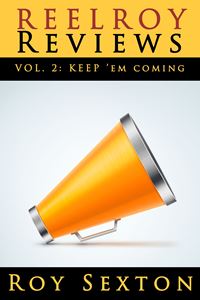And it is with this context that we come to Chronicle-director Josh Trank’s reboot of Fantastic Four, admittedly a film that we, as a downward spiraling culture, did not need, given that the “First Family of Marvel Comics” already hit the silver screen twice in the past ten years in a pair of much campier, candy-colored offerings.
I suppose, given all of the hyperventilating sky-is-falling press over this late summer entry, I expected this new Fantastic Four to be a laugh-out-loud howler of a train wreck, not unlike that last Transformers movie (a movie I might add that nobody liked but still made a billion dollars). It wasn’t … at least not to me and the two other people in last night’s screening room.
I was pleasantly surprised that I actually, sort of, enjoyed myself. Word of warning: it is a very somber affair, but with zero gravitas and even less fun. However, the smart play Josh Trank makes (that is, before he completely disavowed his work on the flick in a Twitter rant a few weeks back) is in staging his film in a creepy, David Cronenberg-lite horror universe, where, say, being turned into a man on fire or a man made of rubber or a man made of orange rocks or a woman who can’t see her own hand is not necessarily a whimsical day at the park. It’s a logical approach, and Trank has cast his film with some of the best young talents in Hollywood, all acquitting themselves nicely.
Yet, it’s not the glib August superhero escapist fare anyone expected in a post-Guardians of the Galaxy moment, not does it have the courage to be full-blown creep-fest either, so Fantastic Four just sort of floats dormant in some audience-confounding, foggy nether realm. In short, I liked the movie’s tone directionally and the cast in concept and the unrealized potential best, which is strange praise indeed.
Playing the titular heroes are Whiplash‘s Miles Teller (“Reed Richards”), House of Cards‘ Kate Mara (‘Susan Storm”), Fruitvale Station‘s Michael B. Jordan (“Johnny Storm”), and Turn‘s Jamie Bell (“Ben Grimm”). The cast’s standout, Bell has a criminal dearth of screen-time, but, in his few stoic minutes, he sets a beautifully glowering tone of disaffected youth that propels and enriches what passes for character development in the movie’s relatively brisk running time.
All that said, much of the film is a drag, but, for some reason, I found its dreary sensibility and general mopiness compelling. Nope, we did not need yet another origin story of these heroes, but that’s what we get. This time instead of rocketing into space, our intrepid foursome explore another dimension (where they gain their amazing abilities … er … deformities) while attending the Baxter Institute, a kind of Hogwarts for Science Geeks in Midtown Manhattan.
By far, the weakest part of the film is its villain Victor Von Doom, a Draco Malfoy without the charm or the pretty platinum hair. In the comics (goofy name notwithstanding), this is a character who can be so fascinating with his Oedipal complex, inferiority complex, God complex, and all around prissy pissiness. For the life of me, I can’t figure out why filmmakers haven’t figured out he is the proto-Darth Vader and deserves a film of his very own. Ah well. At this rate, between Toby Kebbell’s not-ready-for-The-CW posturing in this iteration and Julian McMahon’s pretty boy voguing in the prior films, we will be lucky if we see Dr. Doom selling mouthwash and toothpaste during Saturday morning cartoons.
The film is nothing but 90 minutes of set-up, which would be fine if there was a payoff, but the proceedings completely fall apart in the final act, a clutch of computer-generated nonsense in the “other dimension,” the “otherness” being some billowing clouds, a lot of steam, and goofy floating rocks. Our heroes have to stop Doom from blowing up our world or throwing us all into a black hole or giving us gas from cheap popcorn … or something. Wait, what was this movie about again?
And that’s a shame, because until the film’s final moments, I actually dug it. Maybe Fantastic Four will find a second life as a pleasant, dreary televised diversion on rainy Sunday afternoons, and maybe (one day) someone will finally give this classic family of four-color misfits the smart but zippy movie treatment they deserve. Or not.
Early in Fantastic Four, Reg E. Cathey – playing Franklin Richards, the stony-faced scientist father of Susan and Johnny Storm – rumbles ominously, “The failures of my generation are the opportunities of yours.” And, dammit, the Fantastic Four film franchise is giving us nothing but opportunities. Sigh.
____________________________

![[Image Source: Wikipedia]](https://reelroyreviews.com/wp-content/uploads/2015/08/fantastic-four.jpg?w=203&h=300)

![Description: Film poster; Source: Wikipedia [linked]; Portion used: Film poster only; Low resolution? Sufficient resolution for illustration, but considerably lower resolution than original. Other information: Intellectual property by film studio. Non-free media use rationales: Non-free media use rationale - Article/review; Purpose of use: Used for purposes of critical commentary and illustration in an educational article about the film. The poster is used as the primary means of visual identification of this article topic. Replaceable? Protected by copyright, therefore a free use alternative won't exist.](https://reelroyreviews.com/wp-content/uploads/2014/04/captain-america-winter-soldier.jpg?w=202&h=300)